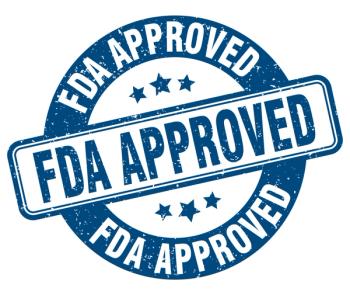
Sun's harmful rays fuel growth of sunless tanning products
sun care stockchecker
Suns harmful rays fuels growth of sunless tanning products
D.P. Hamacher & Associates, a division of NONSTOP Solutions Inc., provided the material for this column. The Hamacher firm is a Milwaukee-based management consulting company specializing in drugstore management tools. For further information, call Hamacher at 1-(800) 888-0889, or e-mail the company at
Gone are the days of baking on a beach to get that deep down tan. Today, we can create the same look without the sun. And were doing it. Dollar sales of sunless tanning products increased 14% in 2000, accounting for 18% of the dollars spent on the sun care category. New products, such as Coppertone Endless Summer from Schering-Plough and Sunless Color Indicator by Playtex, continue to fuel growth.
Other growth
As a whole, the category shows promise with sales climbing 5.2%, to $522 million. Sales in all outlets grew, with mass-merchandisers capturing the lions share, rising 8% over the comparable period a year ago.
Outlet
Mass-merchandiser
Drugstores
Food stores
Source: Information Resources, Inc.
In the past year, the number of new items with high sun protection factor ratings (SPFs) has multiplied. Of the 62 introductions appearing from February 2000 to January 2001, 39 offered an SPF of 25 or greater. Twelve of them rated 44 SPF or better. Hawaiian Tropics Ozone Sun Block raises the bar, with the highest SPF-70+.
Recent findings
Whats causing this higher SPF trend? Consumers, inundated with information describing the potential dangers of the sun, have become aware of recent research findings. Studies confirmed that overexposure to UVA rays represents one of the greatest risks for skin cancer. Yet, as late as 1999, sunscreens and blocks still focused on UVB ray protectionthe cause of sunburn. Addressing the UVA problem head-on, manufacturers now include ingredients that protect against both UVA and UVB exposure.
Changing perceptions
As consumers become more educated, price becomes less important. According to Schering-Ploughs research, 52% of those who use sun care items believe the quality of the product is more important than price. This research also asked consumers to rank the "most important" factors affecting their decision to purchase. They are sun protection factor, water resistance, value, form, brand, and fragrance, in that order
New items
February is the start of the sun care season, although most new items are introduced in December and January. And in this category, new items play an unusually large role. Once again, retailers must sift through a plethora of information in 2001 to identify the hot new items. Of the 62 reviewed by D.P. Hamacher & Associates (DPH&A), 29 were recommended for large plan-o-grams (see asterisks on the
Merchandising
Sun care can strongly contribute to profitability if you take full advantage of the prime selling months.
Drugstores outside of the Sunbelt typically add sun care items in the spring and scale back in the fall. The key to this strategy is stocking the right amount of product and correct product mix.
A well-merchandised gondola 48 by 54 in. (24 linear feet) can satisfy roughly 72% of your customers needs. This mix should include general protection, sunless, childrens, tanning, sport, and after-sun products. According to IRI, six brands and private label account for 71% of the categorys sales. Select 70+% of the assortment from the top-selling brandsBanana Boat, Coppertone, Neutrogena, Hawaiian Tropic, and Coppertone Sport. Then add private-label products. Fill the remaining space with No-Ad, Bullfrog, PreSun Ultra, and Solbar PF.
During the winter months, DPH&A analysts recommend reducing your sun care department to a 2-ft. section (12 linear feet). According to Tanning Research Laboratories Inc., 41% of consumers use sun care products all year, creating new sales opportunities for retailers in fall and winter months.
Placing this department near skin care will expose it to higher traffic. Because sunless products offer a year-round tan, cross-merchandise them in skin care near daily moisturizers containing an SPF factor.
Distinguish your store
The sun care area lets drugstores shine. Make sure you do your part. Place sun and skin care information near your displays. Add signs to direct customers to the pharmacy for assistance. Keep an SPF chart handy for discussing sun protection. Assemble a list of products recommended by local dermatologists and print up handouts listing Web sites that post information on skin cancer prevention. All Web sites of major manufacturers furnish tips on enjoying the sun without the burn.
Counseling patients puts your store a step ahead of your competitors without pharmacies, but you must promote your counseling so your customers know you offer the service. Place signs inviting questions in sun careand all departmentsto let your patients know you welcome discussing their concerns.
Bain de Soleil Luminescence 3.5 oz. SPF 4*
Bain de Soleil Luminescence 3.5 oz. SPF 8*
Bain de Soleil Oil Free face 2 oz. SPF 15*
Bain de Soleil Radiance Eternelle 3.2 oz. Dark*
Bain de Soleil Radiance Eternelle 3.2 oz. Med/Dark*
Banana Boat Cool Color Foam Lotion 8 oz. SPF 30 Blue*
Banana Boat Cool Color Spray 8 oz. SPF 30 Blue*
Banana Boat Galactic Gel 8 oz.*
Banana Boat Sun Block Quick Dry 6 oz. SPF 15*
Banana Boat Sun Block Quick Dry 6 oz. SPF 30*
Banana Boat Sunless Color Indicator 3.75 oz. Deep Dark*
Banana Boat Sunless Color Indicator 3.75 oz. Deep Med*
Banana Boat Sport Gel 6 oz. SPF 30*
Bug Block 4 oz. SPF 15
Bug Block 2 oz. SPF 30
Bug Block 4 oz. SPF 30
Bullfrog Sun Block Fast Blast 8 Hour 4.7 oz. SPF 36*
Bullfrog Sensitive Skin Lotion 5 oz. SPF 30*
Coppertone Dry Oil Spray 6 oz. SPF 4*
Coppertone Dry Oil Spray 6 oz. SPF 8*
Coppertone Endless Summer 3.7 oz. Dark*
Coppertone Endless Summer 3.7 oz. Light/Medium*
Coppertone Gel 6 oz. SPF 15*
Coppertone Gel 6 oz. SPF 30*
Coppertone Kids Sport Lotion 6 oz. SPF 30*
Coppertone Kids Trigger Spray Lotion 6 oz. SPF 30*
Coppertone Water Babies Stick .6 oz. SPF 30*
Dermatone Cream Transparent Zinc Oxide .5 oz. SPF 30
Dermatone Z-Cote Skin Protection Cream 1 oz. SPF 36
Dermatone Z-Cote Skin Protection Cream 4 oz. SPF 36
Hawaiian Tropic Ozone Sun Block 4 oz. SPF 70+
Hawaiian Tropic Oil Free lotion 8 oz. SPF 30
Hawaiian Tropic Oil Free Spray 8 oz. SPF 30
Neutrogena Healthy Defense Sun Block Stick.47 oz. SPF 30*
Neutrogena Healthy Defense Sun Block 4 oz. SPF 30*
Neutrogena Healthy Defense Sun Block 4 oz. SPF 45*
Ombrelle Kids Lotion 4 oz. SPF 44*
Ombrelle Lotion 4 oz. SPF 40 Extreme*
Sea & Ski Baby Sun Block Lotion 7 oz. SPF 50
Sea & Ski Baby Sun Care Lotion 3.5 oz. SPF 50
Sea & Ski Clear Dry Kids Spray 3.5 oz. SPF 30
Sea & Ski Clear Dry Sport Spray 3.5 oz. SPF 15
Sea & Ski Clear Dry Sport Spray 3.5 oz. SPF 30
Sea & Ski Clear Dry Sun Care Spray 3.5 oz. SPF 15
Sea & Ski Clear Dry Sun Care Spray 3.5 oz. SPF 30
Sea & Ski Classic Formula Lotion 5.6 oz. SPF 4
Sea & Ski Classic Formula Lotion 5.6 oz. SPF 30
Sea & Ski Daily Sun Care Lotion 3.5 oz. SPF 50
Sea & Ski Dark Tanning Lotion 12 oz. SPF 4
Sea & Ski Face Block W/Zinc 1.75 oz. SPF 50
Sea & Ski Faces Sun Care Lotion 3.5 oz. SPF 50
Sea & Ski Head Zone Scalp Screen 3.5 oz. SPF 30
Sea & Ski Kids Sun Block Lotion 7 oz. SPF 50
Sea & Ski Kids Sun Care Lotion 3.5 oz. SPF 50
Sea & Ski Multi-Vitamin Replenishing Lotion 8.5 oz.
Sea & Ski Sport Sun Care Lotion 3.5 oz. SPF 50
Sea & Ski Sun Block Lotion 8 oz. SPF 30
Sea & Ski Sun Block Lotion Sport 8 oz. SPF 30
Sea & Ski Sunless Lotion 7 oz. Deep Dark
Sea & Ski Sunless Lotion 7 oz. Light/Medium
Sea & Ski Tea Tree Advanced Moisturizing Lotion 8.5 oz.
Solar Sense Kid Protection Jar .5 oz. SPF 30+
SUN CARE NEVER OUT LIST®
Use this Never Out list to monitor your in-stock condition. The items listed account for more than 50% of the dollar sales in the sun care department. An out-of-stock on any of these items represents a significant loss of sales.
____ Banana Boat Aloe After Sun Lotion 16 oz.
____ Banana Boat Aloe Vera Gel 16 oz.
____ Banana Boat Dark Tanning Lotion 8 oz. SPF 4
____ Banana Boat Dark Tanning Oil Spray 8 oz. SPF 4
____ Coppertone Lotion 4 oz. SPF 4
____ Coppertone Oil Free Lotion 4 oz. SPF 8
____ Coppertone Sun Block Lotion 4 oz. SPF 15
____ Coppertone Sun Block Lotion 4 oz. SPF 30
____ Coppertone Sun Screen Lotion 4 oz. SPF 8
____ Coppertone Shade Lotion 4 oz. SPF 45
____ Coppertone Sport Lotion 4 oz. SPF 15
____ Coppertone Sport Lotion 4 oz. SPF 30
____ Coppertone Water Babies Lotion 4 oz. SPF 45
____ Coppertone Water Babies Lotion 8 oz. SPF 45
____ Neutrogena Lotion 4 oz. SPF 17 Sensitive
____ Neutrogena Lotion 4 oz. SPF 30
____ Neutrogena Lotion 4 oz. SPF 30 Oil Free
____ Neutrogena Lotion 4 oz. SPF 45
____ Neutrogena Sunless Lotion 4 oz. Deep
____ Neutrogena Sunless Lotion 4 oz. Medium/Deep
____ Neutrogena Sunless Spray 3.5 oz. Deep
____ Neutrogena Sunless Spray 3.5 oz. Medium/Deep
____ Presun Ultra Cream 4 oz. SPF 30
____ Presun Ultra Gel 4 oz. SPF 30
SUN CARE COMPETITIVE SHOP LIST
This list includes the most popular and price-sensitive SKUs in the sun care department. Use it to see if your prices on these key items fall within the average everyday retail range.
Banana Boat Dark Tan Oil Spray 8 oz. SPF 4
Coppertone Sun Block Lotion 4 oz. SPF 15
Neutrogena Lotion 4 oz. SPF 45
Neutrogena Sunless Spray 3.5 oz. Med/Dark
Sandra Levy. Sun's harmful rays fuel growth of sunless tanning products.
Drug Topics
2001;8.
Newsletter
Pharmacy practice is always changing. Stay ahead of the curve with the Drug Topics newsletter and get the latest drug information, industry trends, and patient care tips.























